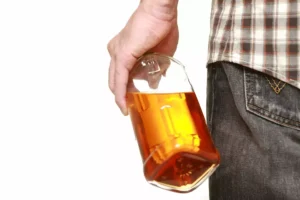
A formal diagnosis of alcohol shakes is sometimes referred to as a cerebellar tremor. Related to degeneration of the cerebellum by long-term consumption of alcohol, a cerebellar tremor makes it difficult for a person to complete any type of movement. For example, an alcoholic or recovering alcoholic with cerebellar tremor who tries to push a button or grasp something would be unable to finish the movement because their hand is shaking so badly.

What are Alcohol Shakes?
- Alcohol interferes with the digestive process, inhibiting the breakdown of nutrients and their absorption in the intestines.
- For someone with moderate-to-severe alcohol withdrawal symptoms, inpatient treatment will likely be the best option.
- It can also result from something more serious, like liver disease and addiction.
- Different from alcohol shakes, this condition may also cause agitation and hallucinations.
- Alcohol tremors typically take effect around 6-8 hours after you finish drinking and peak around hours after your last drink.
There are a whole range of symptoms, including both physical and psychological issues. Mason Ungar is a Certified Alcohol Drug Counselor-Clinical Supervisor who manages the Elevate Addiction Services South Lake Tahoe facility. Mason has worked in the drug and alcohol rehabilitation field for over 18 years, holding many positions throughout his career including conduct intervention counseling, family advising, and one-on-one counseling. Mason is detail oriented, organized, efficient oral and written communicator, and passionate about creating a positive workplace for our staff and an excellent recovery environment for our clients. With 2 years of experience in the field, she is committed to creating personalized recovery plans that empower clients to achieve long-term success.
Alcohol-Related Brain Damage
Drinking alcohol can also have negative effects on the peripheral nervous system (PNS). This includes alcohol tremor the nerves that send signals to the muscles and organs. The alcohol will continue to circulate in the bloodstream and eventually affect other organs. Fetal alcohol syndrome can occur when a person is exposed to alcohol before birth.
When do I need professional help for alcohol shakes and tremors?
Her role is to help our clients develop and improve their physical and mental health well-being. She approaches her clients from a place of authenticity, genuine compassion, and believes that everybody deserves a rich and fulfilling life free of addiction and maladaptive behaviors. Elevate’s holistic drug rehab center in California can be your first step toward recovery and a tremor-free life. At two cutting-edge facilities in Santa Cruz and Lake Tahoe, our medical experts, therapists, and specialists can help you work through alcohol shakes, anxiety, and any other struggles you may be experiencing. Alcohol shakes may not always be cause for immediate alarm, but it’s worth understanding what’s going on if you or a loved one experiences tremors from drinking alcohol.
Build a Support Group
BetterHelp offers affordable mental health care via phone, video, or live-chat. For most people with alcoholism, medical detoxing is the first step in sobering up. Tremors refer to involuntary shaking in one or various areas of the body. These groups include those who have had drinking problems in the past and now offer support to people wishing to overcome their drinking habits.

Several prescription medications are available that provide relief from withdrawal symptoms such as cravings for alcohol and alcohol shakes. Also called beta-adrenergic blockers, adrenergics such as propranolol help block symptoms of detoxification, especially excessive sweating, arrhythmia, body tremors, and rapid heartbeat. Propranolol and other beta-blockers work to improve blood circulation and reduce blood pressure by curbing heart rate and dilating blood vessels. The only cause of DTs is withdrawal that happens when someone with alcohol use disorder stops drinking alcohol suddenly.

What can the recovering alcoholic do to reduce tremors?
Confidant Health is a virtual platform where you can consult a licensed consultant to help you throughout your journey toward an alcohol-free life. Over-the-counter remedies for alcohol shakes may work for binge drinkers or those who have been drinking heavily for a short period. However, long-term alcoholics should always get help today by contacting EHN Canada.

- When alcohol use is stopped, the brain responds to this condition by increasing nerve activity in order to maintain body homeostasis.
- Not drinking breaks the cycle of consuming and withdrawing from alcohol.
- Propranolol and other beta-blockers work to improve blood circulation and reduce blood pressure by curbing heart rate and dilating blood vessels.
- Family counseling can provide family support to cope with alcohol withdrawal symptoms and other problems related to quitting alcohol.
- If you are struggling with alcohol abuse or addiction, you must seek treatment.
- Neurologic disorders can include fetal alcohol syndrome, dementia, and alcoholic neuropathy.
Furthermore, alcohol increases the excretion of certain nutrients through the kidneys, further exacerbating deficiencies. For instance, excessive alcohol consumption can result in the loss of magnesium, a mineral that plays a crucial role in muscle relaxation and nerve function. A reduced magnesium level can contribute to muscle spasms, cramps, and, notably, tremors. Alcohol use disorder isn’t a condition that happens for just one reason. Family history, mental health conditions and many other factors can play a role. If you’re concerned about your risks for developing alcohol use disorder, it’s a good idea to talk to a healthcare provider.

















